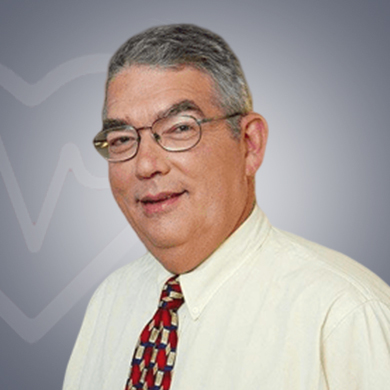
25 Years of experience
Speaks: English
Dr. Arnon Naglar is a renowned haematologist at the Sheba Medical Centre, Tel Hashomer, Israel. He has over 25 years of experience in his field of medicine. He obtained his M.D. certification from the Hebrew University-Hadassah Medical School, Jerusalem. He then went on to Specialize in Internal Medicine and Haematology at the Rambam Medical Centre, Haifa. He then even did a further specialization, MSc. specialization in Haematopoiesis in TA University, Israel. Prof. Nagler specializes in internal diseases, haematology, bone marrow transplantation, and umbilical cord blood transplant. He even obtained advanced training in haemato-oncology and bone marrow transplantation at Stanford University (Stanford, USA).
Dr. Arnon Naglar has been a part of many research publications in world-famous medical journals. He has received more than 40 grants from the government, science foundations, and pharmaceutical companies and has published hundreds of books and academic papers. Dr. Arnon has also won many awards in the field of haematology and organ transplant and holds more than 40 patents. As of today, Dr, Prof. Nagler holds the title of Professor of Medicine at Tel Aviv University as well.
Here are some of the many kinds of issues that patients are affected with treated by Dr. Professor Arnon Naglar.:
The disorders of the lymphatic system i.e., lymph nodes, vessels and blood disorders are managed by these doctors. You can be referred to a Hematologist when you are suffering from Multiple Myeloma (bone marrow, lymph nodes, or white blood cells cancer), Lymphoma (cancer of lymph nodes and vessels) and Leukemia (cancer of blood cells) respectively. Also, sickle cell anemia, thalassemia and anemia are the conditions for which hematologist is the right answer.
There are several signs and symptoms which indicate that a visit to a Hematologist is necessary.
A consultation with this doctor might become a necessity when their are symptoms like persistent fatigue, fever, night sweats.. Further, a shortness of breath and unexplained weight loss are more signs of hematological health issues. Kindly see a hematologist as soon as possible if you are having some of these symptoms.
The doctor is available for consultation and operation from 9 am to 1 pm on Sunday and from 9 am to 6 pm from Monday to Saturday. The skills and expertise of the doctor in the specialty is an added bonus with vast experience and indepth education.
The patients are being operated upon with the following popular procedures by Dr. Professor Arnon Naglar.
Blood related conditions are what are treated by the doctor and the procedures revolve around the same. When any procedure is performed to remove the abnormal tissue and the same is done with cold, heat, lasers, or chemicals. Also, when bone marrow transplant or blood transfusion is to be performed then Hematologists come into the picture.

Share Your Experience about Dr. Professor Arnon Naglar

Dr. Arnon has over 25 years of experience in haematology.
Prof. Nagler specializes in internal diseases, haematology, bone marrow transplantation, and umbilical cord blood transplant.
Yes, Professor Arnon Naglar provides online consultation through MediGence.
Dr. Arnon is part of many international and national medical associations.
A specialist like Dr. Arnon helps in curing and treating a variety of conditions related to blood. Dr. Arnon has also helped cure patients with many different types of blood cancer as well.
He can be easily consulted by registering your profile with medigence and writing down your inquiry. A meeting with the surgeon will be scheduled. Following which the consultation can be done.
A Hematologist researches and diagnoses several conditions of blood and of lymphatic system. Blood, bone marrow and lymphatic system related medical treatment and procedures are done by a Hematologist. The doctors also work in tandem with some other specialists to manage your condition or to interpret the test results for you. Sepsis, reaction to an infection and a genetic blood clotting disorder like Hemophilia are treated by a Hematologist.
Here is a list of tests that are important prior to and during a consultation with a hematologist.
When the aim is to check you for clotting and bleeding disorders, it is tests like Prothrombin time and Partial thromboplastin time that do so. All three blood cells related characteristics and numbers are monitored through a test called as a complete blood count. Blood disorders, bone marrow disorders, some cancers and infections in the bone marrow can be diagnosed and monitored via bone marrow biopsy.
Post tests and consultation with your primary care physician you could be referred to a Hematologist if the doctor realises that your conditions are linked to blood, bone marrow or lymphatic system. Anemia, having less red blood cells and sickle cell anemia, when red blood cells are shaped like sickle, crescent moon are both a sign that you should see a Hematologist. Please begin your treatment process with a Hematologist if you have any of the cancers like leukemia, multiple myeloma or lymphoma. Visiting the specialist should not be delayed at all when the symptoms start showing.